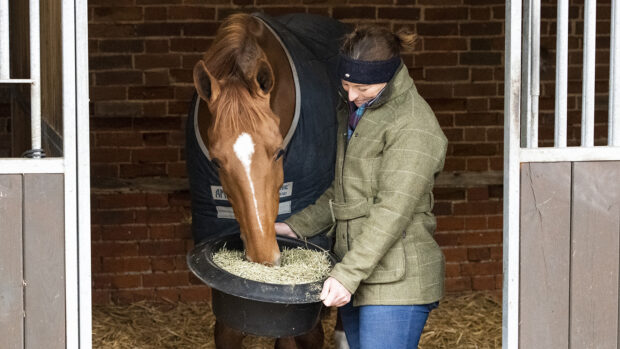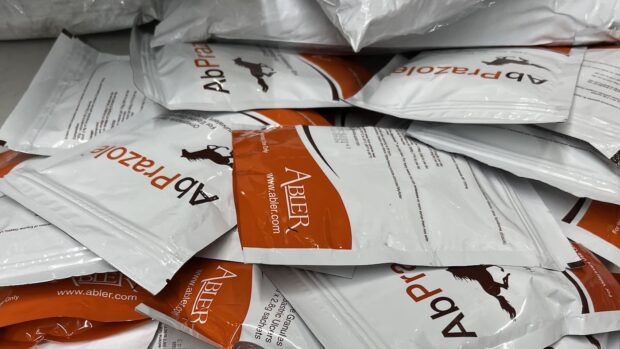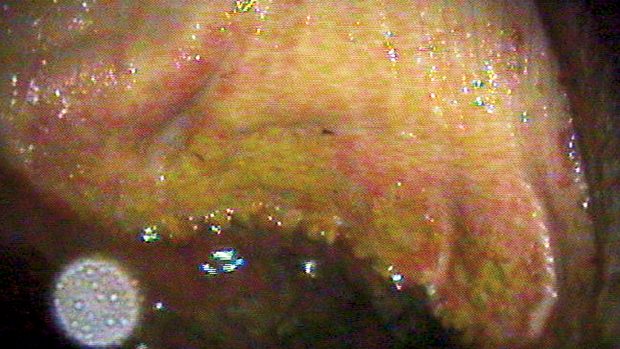Today (Friday 1 May) is the start of Gastric Ulcer Awareness Month 2009 (GUAM). To mark the occasion the UK’s first online gastric ulcer risk assessment for horse owners has been launched by Merial Equine Health.
The assessment process is an tickbox questionnaire, aimed at owners, riders or trainers to work out their horse’s risk of ulcers.
According to Merial Equine Health around 90% of racehorses in training have gastric ulcers. And about 60% of performance horses and 40% of leisure horses are also affected.
Dr Emma Batson from Merial Equine Health said: “While humans only secrete acid into the stomach when they eat, horses, who are designed to be constant trickle feeders, release acid into the stomach constantly, regardless of whether or not they are eating.
“With modern stabling and exercise, the vulnerable top part of the horses’ stomach can become exposed to acid why, and ulcers can develop.”
The stomach of a horse suffering from gastric ulcers
Signs of ulcers include poor performance, picky appetite, mild weight loss, starey coat, discomfort on girth tightening, colic and salivation, and teeth grinding in foals.
Results will be returned by email. Horses which are identified as having a medium to high ulcer risk will be referred to their vets by Merial.
Dr Batson added: “Following the first two GUAM initiatives in 2007 and 2008, many more horses have been identified, diagnosed and successfully treated for gastric ulcers.
“Due to the vague nature of the signs, many of these horses were previously suspected of other ailments such as back and teeth problems, general poor performance, or behavioural issues.
“Our goal is to move gastric ulcers further up the diagnostic process, so the condition is an early consideration for all horses presenting with the vague symptoms associated with ulceration.”
For more information or to complete the questionnaire visit: www.gastriculcerrisk.co.uk





